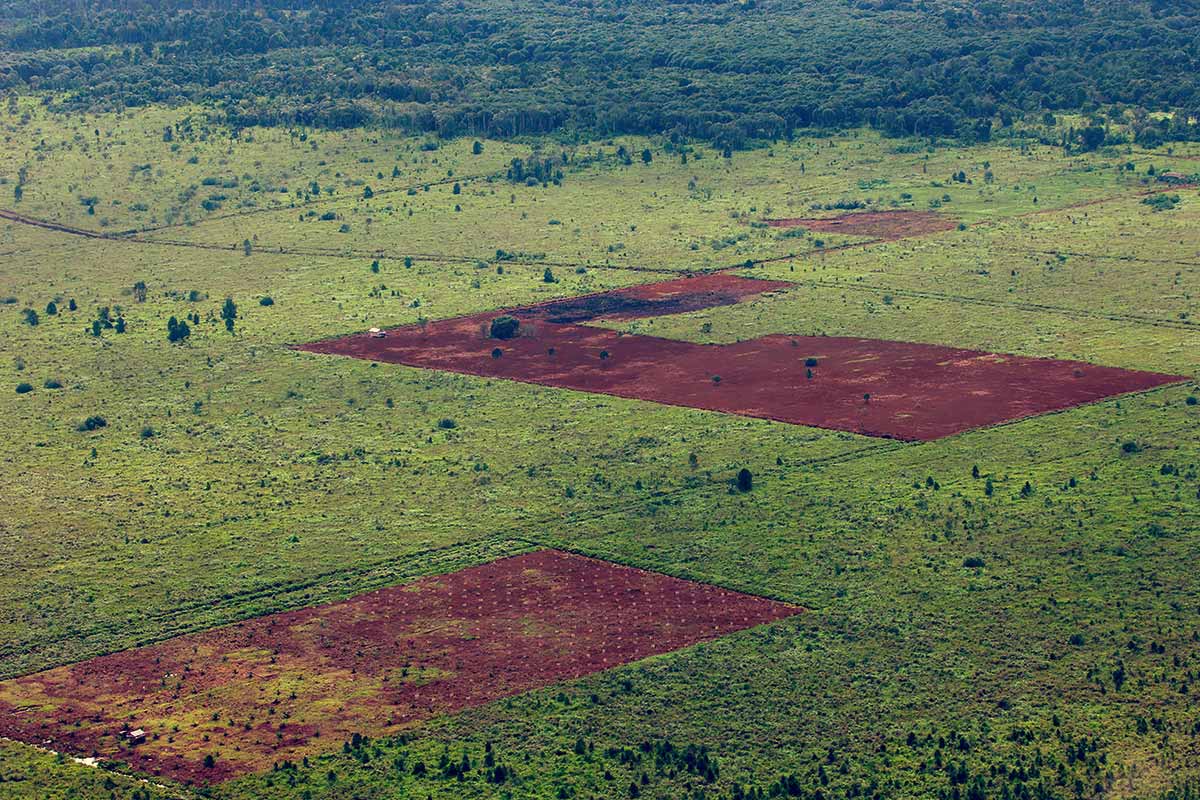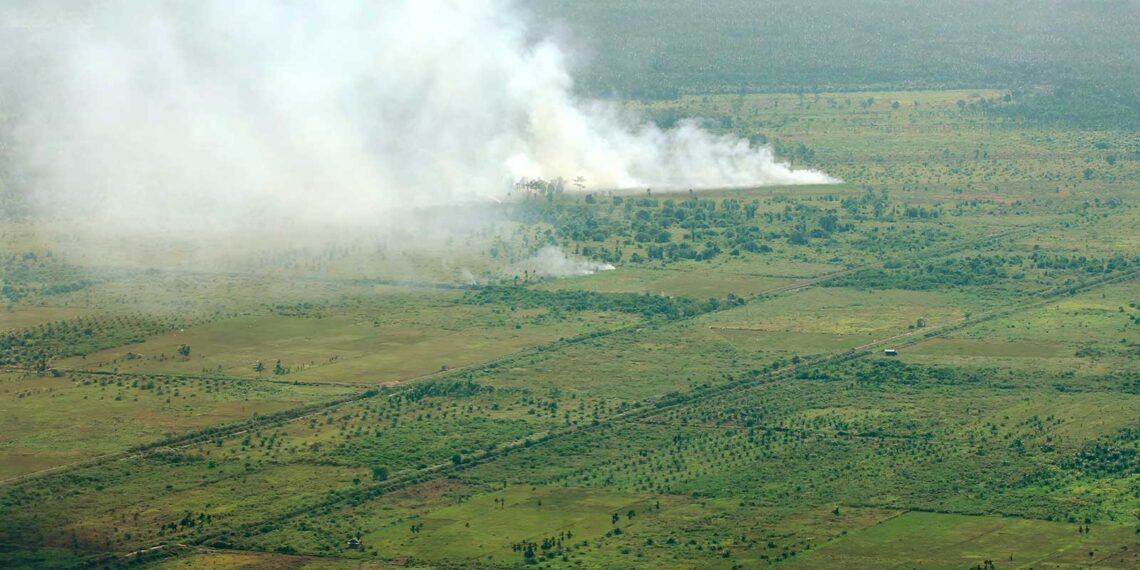Indonesia is home to an abundance of magnificent forests and wetlands. But year after year they are destroyed by the palm oil industry – and the government turns a blind eye. A situation that deeply worries Rusmadya Maharuddin, campaigner for Greenpeace Indonesia.
Interview: Danielle Müller, Greenpeace Switzerland
Danielle Müller: Every year, forests and wetlands burn in Indonesia. Why?
Rusmadya Maharuddin: The palm oil industry is behind this: it sets fire to forests and swamps in order to plant profitable oil palms in their place. Precious ecosystems have to make way for large-scale monocultures year after year.
DM: In 2018, the Indonesian government committed to restoring two million hectares of peatlands. It also banned the slash-and-burn clearing of forests and marshland. What has changed since then?
RM: The forest moratorium is a good example of Indonesian government propaganda on forest protection. It sounds impressive, but it hasn’t changed anything. Three years earlier, after the devastating fires in 2015, President Jokowi had already made great promises. The result was merely bunglingly formulated and inadequately reviewed laws. This is also confirmed by the report by Greenpeace Southeast Asia, “Burning Issues: Five Years of Fire”. According to the report, an area of 4.4 million hectares of land was burned in Indonesia between 2015 and 2019. That exceeds the size of the whole of Switzerland! So there can be no question of restoration.
DM: Why is the government simply letting the palm oil industry get away with it?
RM: The government is not just letting the companies have their way, the palm oil industry has been able to practically set the laws itself over the past decades. The most recent example is the omnibus bill, which the government passed to the total exclusion of the population and environmental organizations. This law sweeps aside the already low level of environmental protection. It threatens to destroy Indonesia’s remaining forests and wetlands and displace indigenous communities. Only the palm oil industry was consulted during the drafting process. Like giving a hungry fox the keys to the henhouse.
DM: So the government is not protecting its own people?
RM: No. The fires endanger millions of Indonesian children, for example, as numerous health studies have shown. They show slower growth, lower cognitive abilities – and thousands die as fetuses. Instead of protecting the population, the government even plays down the health effects of the fires. The Greenpeace report “Burning Up” from 2020 provides impressive evidence of this: according to estimates by epidemiologists, the air pollution caused by the disastrous fires in 2015 cost the lives of several thousand people. However, the government officially confirmed only 24 deaths. The report also raises concerns that the persistent smog due to the fires could increase the risk of Covid19 infection and worsen the course of the disease. And yet, in October 2020, the government passed the Omnibus Act, which nullifies any protection against slash-and-burn.

The impact of the palm oil industry on nature
DM: What impact does intensive palm oil cultivation have on Indonesia’s nature?
RM: Deforestation has devastated the lowland forests of Sumatra and Kalimantan, destroying important habitat for tigers, elephants, rhinos, orangutans and other endangered species. Scientists estimate that there are only around 400 Sumatran tigers left in the wild in Indonesia today, compared to around 1,000 in 1970. The number of orangutans in Borneo also fell by more than half between 1999 and 2015. Added to this are the emissions released by draining the marshland. Peatlands are highly concentrated carbon reservoirs that bind an average of ten times more CO2 than other ecosystems. Without their protection and restoration, curbing global warming is almost impossible.
DM: The consequences of palm oil cultivation are no secret. And yet demand is increasing worldwide. What does this mean for Indonesia?
RM: The high demand continues to drive the expansion of plantations. Today, half of the products in the supermarket contain palm oil. The production of biofuel from plant-based raw materials such as palm oil has also increased rapidly in recent years. Indonesia is promoting production, and the EU is also supporting it. However, this cannot be the solution to the problem of fossil fuels. Governments worldwide must stop the exploitation of natural ecosystems. So there is still a lot to do.
DM: Can sustainably produced palm oil make a difference?
RM: Yes, because it is possible to produce palm oil without destroying forests and moors. Millions of Indonesian smallholder families are already achieving this today. The solution would be for large corporations to buy their palm oil exclusively from such responsible producers. Nationwide, sustainable production can only succeed if companies take full responsibility for their supply chains. However, if they continue to drive the destruction of ecosystems, the fires in Indonesia will not be extinguished.
Greenpeace
Greenpeace is an environmental organization that campaigns worldwide for the preservation of natural resources. She tackles problems persistently, non-violently and consistently – even in the face of resistance and over long periods of time. The NGO was founded in 1971 and today has a total of 72 country and regional offices in over 55 countries. Over three million donors worldwide support Greenpeace.
The organization is independent of governments, political parties and economic interest groups. It is financed exclusively by donations from private individuals and grants from selected foundations.
greenpeace.ch
Greenpeace explains the problem with palm oil. Read the whole story here.
There are so many problems that could cause a crisis. In fashion, however, there are labels such as Poplin Project, Gina Grünwald and Fateeva that do everything right when it comes to sustainability.
Teaser photo & photos: © pa picture alliance (dpa)








